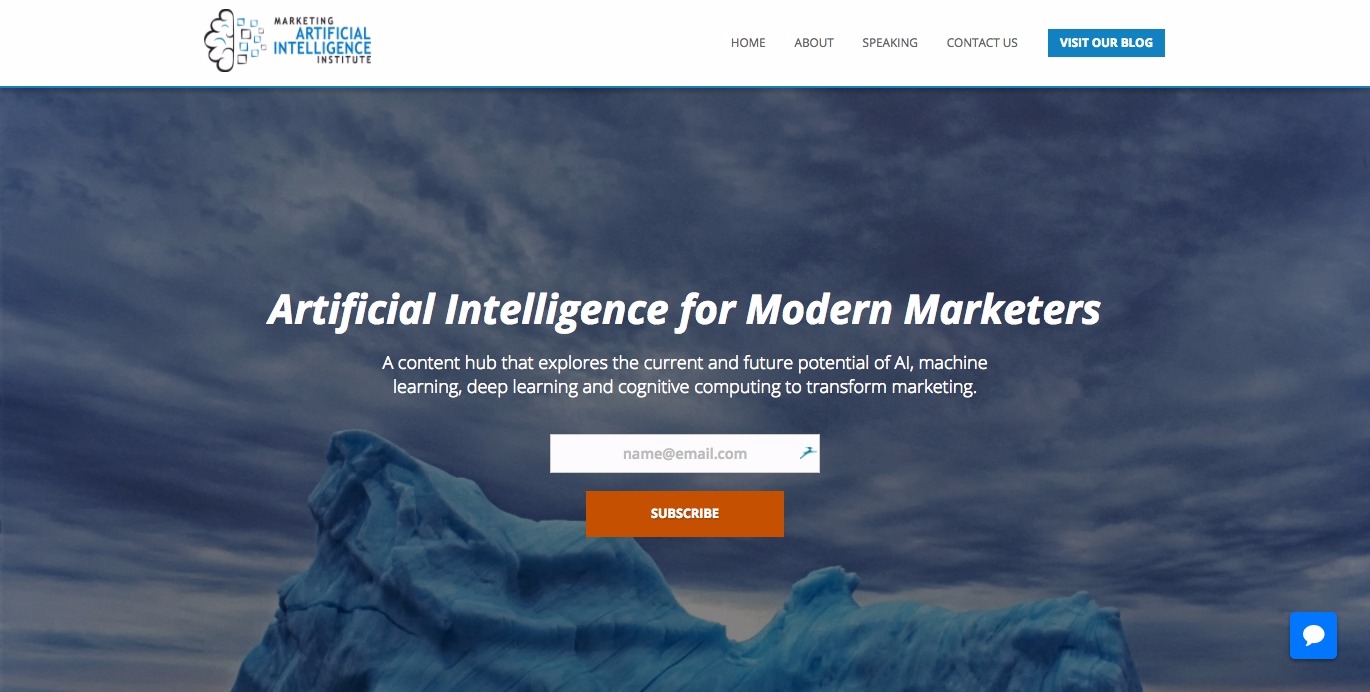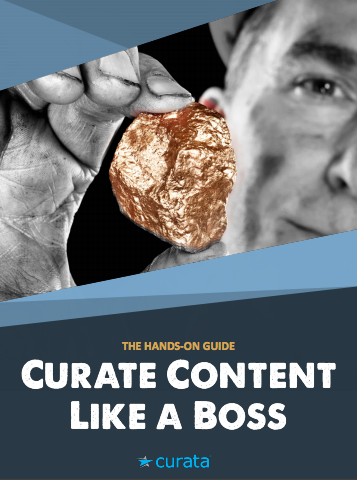- Share Why Artificial Intelligence Is the Future of Content Marketing on Facebook
- Share Why Artificial Intelligence Is the Future of Content Marketing on Twitter
- Share Why Artificial Intelligence Is the Future of Content Marketing on Linkedin
- Share Why Artificial Intelligence Is the Future of Content Marketing via email
In 2015 my marketing agency, PR 20/20, was struggling to create enough content at scale while maintaining quality, a challenge faced by many marketing organizations. At the same time, advancements in marketing AI (artificial intelligence) convinced me that machine-assisted content could be a possibility in the near future.
The big question I couldn’t get out of my mind was: Could my company automate and scale our content marketing activities using marketing AI to create greater value for our clients and efficiency for our business?
I heard the managing editor of the Associated Press and the CEO of Automated Insights talk about how the AP had automated the creation of its earnings reports using AI, and I knew we had to explore the technology further.
As we did, we learned not only how to better automate and scale content creation, but that marketing AI was about to transform content marketing forever.
Artificial Intelligence and Content Marketing
Consider how much time you and your team spend on mundane content marketing activities. Things like discovering keywords; planning blog post topics; writing, optimizing, personalizing and automating content; testing landing pages; scheduling social shares; reviewing analytics, and shaping content strategies.
Now imagine if a machine performed the majority of those activities and your primary role was to enhance rather than create. In fact, many solutions (including Curata) already exist to perform these tasks. And they free up marketers to perform higher-value activities and drive business performance.
This shift is possible thanks to artificial intelligence.
Artificial intelligence is the “science of making machines smart,” according to Demis Hassabis, CEO of DeepMind, an AI startup acquired by Google for north of $500 million in 2014. This, in turn, augments human knowledge and capabilities.
AI is an umbrella term to describe a suite of unique, but related, technologies at varying degrees of maturity. These include, among others, machine learning, deep learning, neural networks, natural language processing (NLP), and natural language generation (NLG).
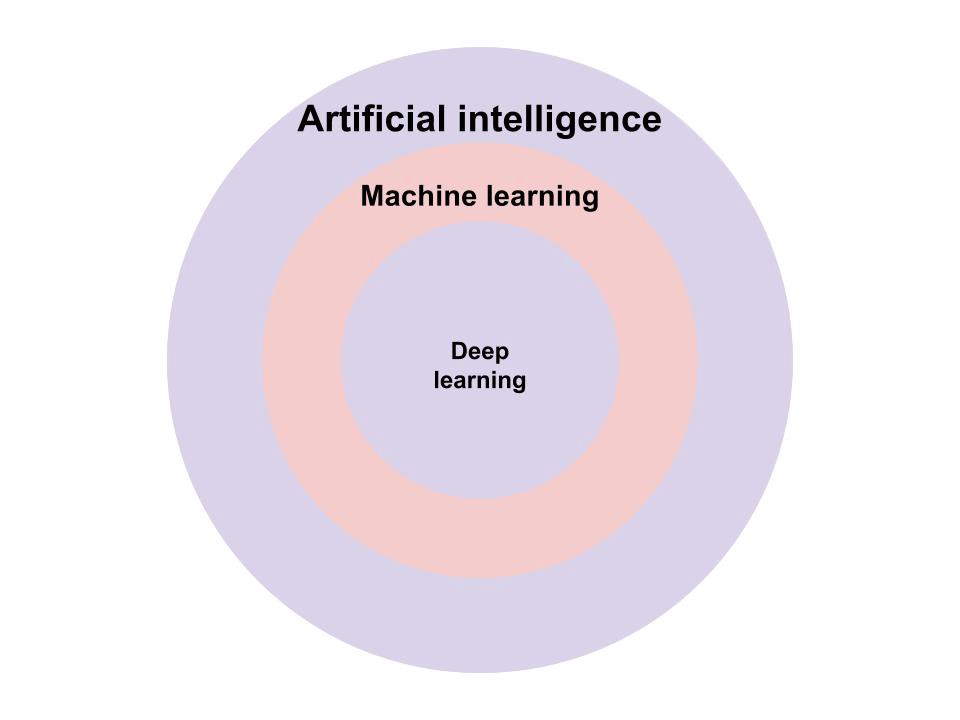
Most machines function thanks to algorithms, a set of mathematical instructions that tells the machine what to do. Except with AI a machine can create its own algorithms, determine new paths, and unlock unlimited potential to advance marketing, business, and mankind.
Implications for Content Marketers
Today, marketers manually assemble workflows for later automation. If a visitor to a website downloads an ebook, then send them a three-part email nurturing campaign.
But what happens when the reality becomes more complex? What if there are 10,000 eBook downloads across five personas, originating from multiple channels (social, organic, paid, direct) that require personalized emails and website experiences based on user history?
The marketing automation that content marketers use today is, ironically, largely manual. These platforms do save time, increase efficiency and productivity, and drive performance. But they do not provide deep insights into data, recommend actions, predict outcomes, or create content.
Once you add artificial intelligence, however, the game changes completely.

Disruption, Transformation, and Opportunity
Nearly 90 percent of all the data in the world has been created in the last two years thanks to the proliferation of the internet (and video). As a result, marketers (and everyone else) are drowning in information. Marketers have access to data from dozens of sources, such as social monitoring, web analytics, email, call tracking, sales, advertising, remarketing, and ecommerce.
Human beings, however, have a finite ability to process information, build strategies based on that information, and create content at scale. Artificial intelligence systems, in contrast, have an almost infinite ability to process data, and deliver predictions, recommendations, and content—better, faster, and cheaper.
And yet, content marketing remains largely human powered, with a bit of automation mixed in.
As other industries show however, the future may be closer than we think.
On Wall Street today, more than 60 percent of all trades are executed by AI with little or no real-time oversight from humans, according to Christopher Steiner in Automate This.
UPS leverages algorithms of staggering complexity to calculate all the possibilities for each of the 120 stops each of its drivers make per day (the number of possibilities has 180+ zeros).
Netflix suggests content and manufactures shows based on analysis of viewer data from its machine learning systems. In fact, 75 percent of what people watch on Netflix is from an algorithm-generated recommendation. Artificially intelligent algorithms also power Tesla self-driving cars, Apple voice assistants, and Amazon product recommendations.
Marketing is Next
Marc Benioff, CEO and founder of Salesforce, told Fortune that marketing is in an “AI spring,” and that “data science will fundamentally change how we run our business because we’re going to have computers aiding us in how we’re interacting with our customers.” In fact, the company is all-in on marketing AI, rolling out artificial intelligence capabilities across its entire product suite.
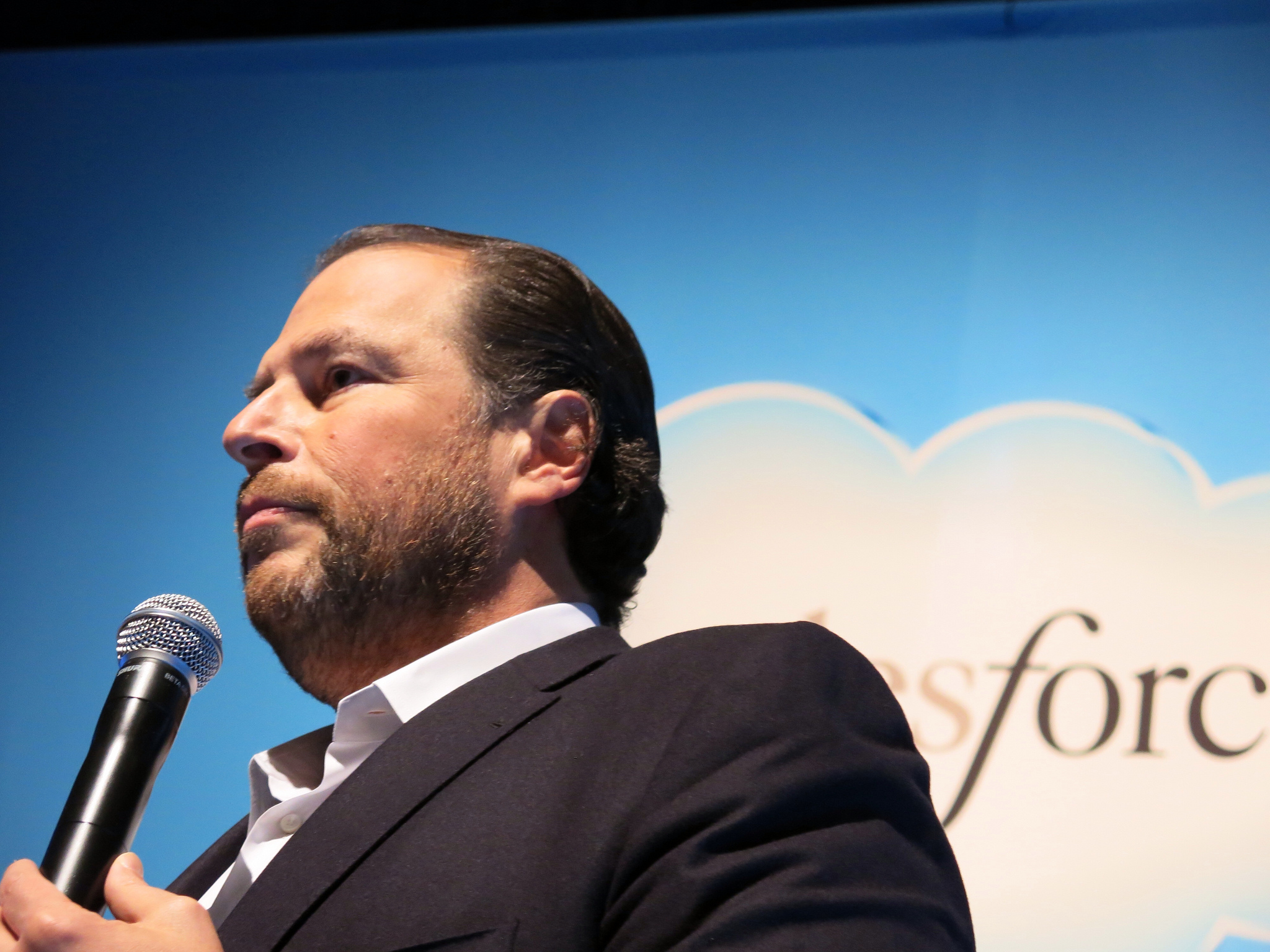
Facebook uses deep learning, an AI subfield, to filter your Newsfeed and recognize faces in the photos you upload. In the long term, Facebook seeks to “understand intelligence and make intelligent machines.”
Google’s head of artificial intelligence now leads the company’s search operations, indicating that the very organizational structure of the internet will depend on AI.
IBM possesses an estimated 825 AI-related patents. It built IBM Watson, a technology platform which leverages natural language processing and machine learning to reveal insights from large amounts of unstructured data. (Watson attracted renown for beating a human champion in the TV game show Jeopardy.)
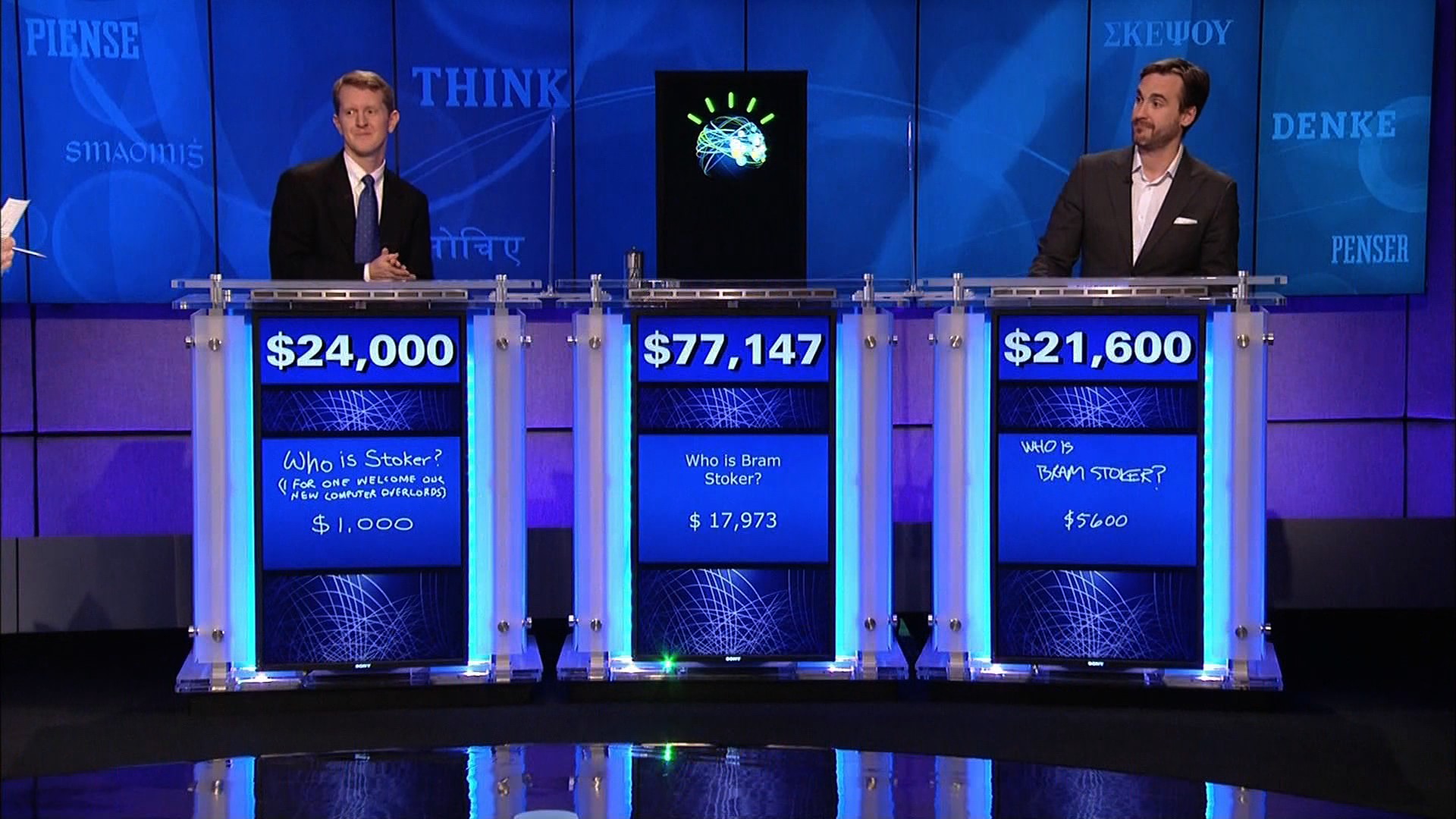
Internet giants aren’t the only ones getting into the game. Twenty-four marketing AI startups we track and write about have more than $218 million in funding. Six AI companies in CB Insights’ AI 100 list have direct applications to marketing and more than $500 million in funding. Across all industries, deals to AI startups have risen by 4.6 times in the five years to 2016.
Artificial intelligence is about to take the marketing industry by storm. It will transform jobs, enhance roles, and create huge opportunities for businesses that leverage marketing AI effectively.
So, how can content marketers evolve and adapt to what’s coming?
How to Survive and Thrive in the Age of AI
While disruption will happen faster than most anticipate, it’s important to realize we’re still in very early days. Many of the rising AI tech companies have significant venture capital funding. However, they have limited market success to prove their products work and that the models are scalable.
AI also requires massive amounts of data and customized solutions, so large enterprises are more likely to see short-term benefits from AI investments.
However, there is a push to make AI technology more affordable and accessible, which should accelerate AI development and adoption. The challenge, however, will be finding technical talent capable of building and executing AI solutions.
This means that now is the perfect time for content marketers to get ahead of the curve.
Here’s how:
- Evaluate repetitive, manual marketing tasks that could be intelligently automated. There are dozens of AI-powered marketing tools that you can use to plan, optimize, create, personalize, promote, measure, and analyze content. Tools like Acrolinx help you plan and optimize, while solutions like Automated Insights help you create content at scale. Tools like OneSpot offer personalization and promotion. And AI tech like Curata and Scoop.it are great for promoting, measuring, and analyzing that content’s performance. (See an expanded list of useful content marketing AI tools here.)
- Assess opportunities to get more out of your data. There are plenty of ways to discover insights, predict outcomes, devise strategies, personalize content, and tell stories at scale with the right type and amount of data. However, the right type and amount of data are highly specific to your organization and your needs. Marketers should involve the internal owners of datasets in this process as soon as possible.
- Consider the AI capabilities of your existing marketing technology. Platforms like Salesforce and HubSpot are actively integrating AI into their existing products. Existing platforms give content marketers a great place to start familiarizing themselves with AI capabilities. From there, explore the potential of emerging AI solutions. (The Marketing AI Institute is a great place to start.)
Content Marketing Careers are About to Change. Rapidly
This is only the beginning of marketing AI. While developments are moving fast, most content marketers have not undertaken much study of how AI can—and will—affect their jobs, performance, and businesses.
Artificial intelligence won’t just automate or augment certain content marketing activities. It will also alter how marketing channels work—and which skillsets are required to thrive in the near future.
When marketing AI systems are able to automatically optimize search and paid campaigns, the skills valued in marketers will change. As marketing AI is increasingly able to generate insightful reports, the type of analysis required of and valued by marketers will be different than in the past. If marketing AI is able to write basic content, content marketers will need to adapt.
This is obvious: marketing skills change with the times. But with marketing AI, these skills will change faster than in the past. As intelligent systems learn and improve, they will become more and more capable of performing cognitive tasks formerly reserved for humans.
Marketing AI is Already Here
We expect this shift to happen far faster than the transition from traditional to digital or mobile channels. Content marketers should prepare now.
Marketing AI is most prominently manifesting in a new technology known as content intelligence. To learn more, download the white paper Content Intelligence: The New Frontier of Content Marketing.






